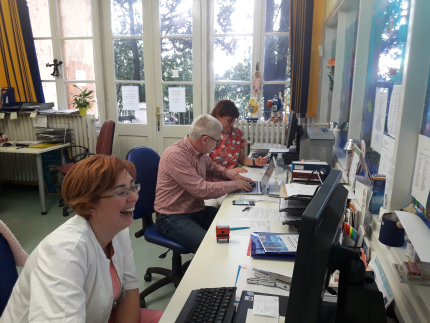Improvement of diagnostics, with testing 3 methods to improve CD practice
University hospital center Rijeka – PP4 – UHC Rijeka
Our idea is to try to find some other markers without the need for invasive approach.
University hospital center Rijeka is implementing a pilot project with a goal to establish the role of noninvasive biomarkers in detection and follow up of celiac disease (CD) patients. There are clear algorithms how to make the diagnosis of CD and how to follow these patients. The basis are blood sampling and detection of autoantibodies specific for celiac disease, mainly TGA-IgA and sometimes DGP-IgG. This should be done in regular time intervals depending on the specific patient. Our idea is to try to find some other markers without the need for invasive approach. According to the current knowledge, we chose three potential biomarkers detected in stool: gluten deposits, calprotectin and elastase. We will try to determine whether they can be used for the diagnosis or to follow up. That's the reason why we divided patients into 3 groups. In the first group there are patients with newly diagnosed CD still eating gluten, in the second patients with known CD on gluten-free diet and normal levels of TGA-IgA or DGP-IgG if IgA deficient, which means that the disease is well controlled, and in the third healthy controls. After signing the Inform consent, every patient brings two stool samples, one for measuring elastase and calprotectin levels, and the second sample is saved for measuring gluten deposits. Project partners from Italy will perform the third measurement. Besides that, partners form both Italy and Slovenia are helping us in collecting samples from newly diagnosed patients since the total number of newly diagnosed is low when counting in absolute numbers since Croatia is a small country. There will be 50 patients in every group. Up until now we have collected approximately 40 samples from 20 patients. The others will be collected during the next months.

